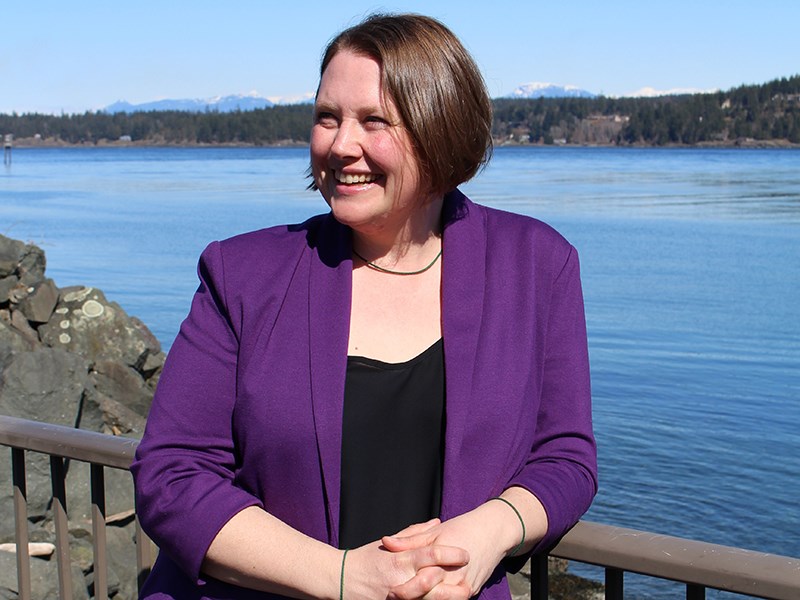Rachel Blaney anticipates new opportunities and challenges in her second term as NDP MP for North Island-Powell River, after voters delivered a Liberal minority government in last month’s federal election.
Her party finished with 24 seats, down from the 44 won in 2015. However, because the Liberal Party lost its parliamentary majority, it will need support from other parties to pass legislation. That, said Blaney, presents a potential opportunity for the NDP to ensure prime minister Justin Trudeau listens to other parties.
“What I’m hoping to see is a more collaborative effort by the Liberal government to see the value in the other parties,” she said. “I really feel that often when the Liberals campaign, they campaign like they’re going to work hard for everyday Canadians, and when they govern, they forget everyday Canadians and make sure their wealthy friends are taken care of.”
In particular, Blaney said she wants to see the government quickly address the concerns she said her constituents expressed during the election.
“Affordable medication and dental care were huge priorities; affordable housing was another issue,” she explained. “Another thing I heard loud and clear was wanting to do action around the environment, but also making sure legislation that is put out there remembers rural and remote communities, and helps those communities be successful as they transition.”
Although Trudeau has ruled out forming a coalition with other parties, he sat down with opposition party leaders last weekto discuss their priorities.
NDP leader Jagmeet Singh said his party wants to see action on the introduction of single-payer pharmacare, and an immediate end to the government’s appeal of the Human Rights Tribunal’s decision ordering the government to pay indigenous children and their families $40,000 each in compensation after they were wrongly placed in foster care. Singh said if those concerns aren’t firmly addressed in the next throne speech on December 5, his caucus would be prepared to vote against the government.
“I’m personally tired of [Trudeau’s] token responses that don’t really get to the key issues,” said Blaney.
However, even if Trudeau does address some of the NDP’s demands, Blaney said she is concerned by indications that there will be other policy areas where the Liberals and Conservatives might team up and vote together.
“When it comes to things like climate change, I think that’s going to be one of our biggest challenges,” she added. “I’m really worried about the Liberals and Conservatives moving together to push forward in ways that many Canadians feel are not the best way to move into a green economy.”
Shortly after the election, Trudeau said one of his first priorities was moving ahead with the Trans Mountain Pipeline expansion, a project the Conservatives support but the NDP and Green Party both said was incompatible with Canada’s climate-action goals.
Blaney said the issue-by-issue manner by which Trudeau seems to be planning to govern also means she and her colleagues will likely have to spend more time working in Ottawa than in their ridings.
“This time around one of the biggest challenges is that when you’re in a minority situation, votes become even more powerful,” she explained. “I expect to be called to stay in Ottawa a little bit more than I would like to.”
However, Blaney added, “even when I’m in Ottawa a lot of my time is spent bringing to ministers’ attention the issues that matter a lot to our riding. I’ll be able to do that regardless of whether I’m in Ottawa or in the riding.”



